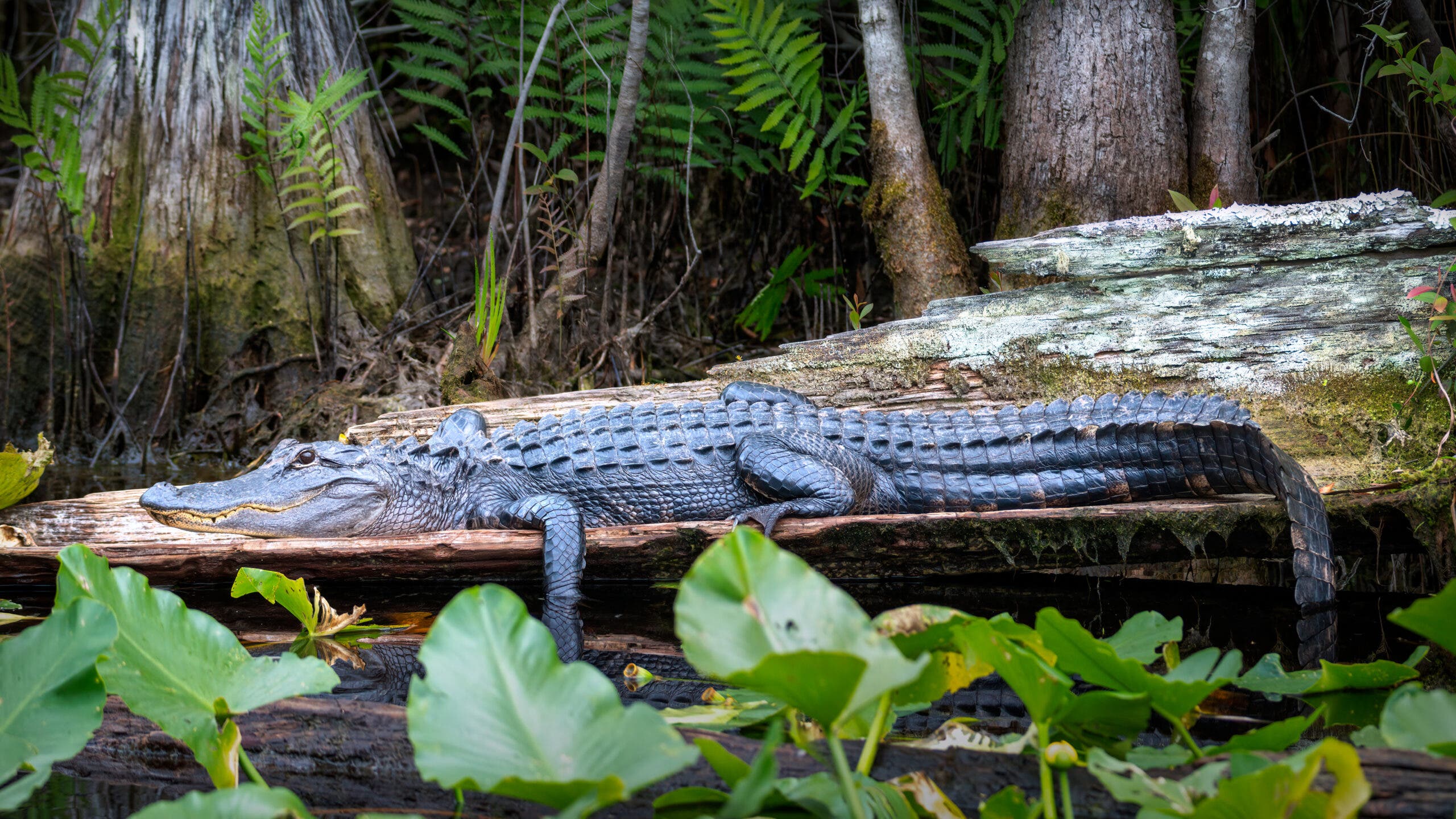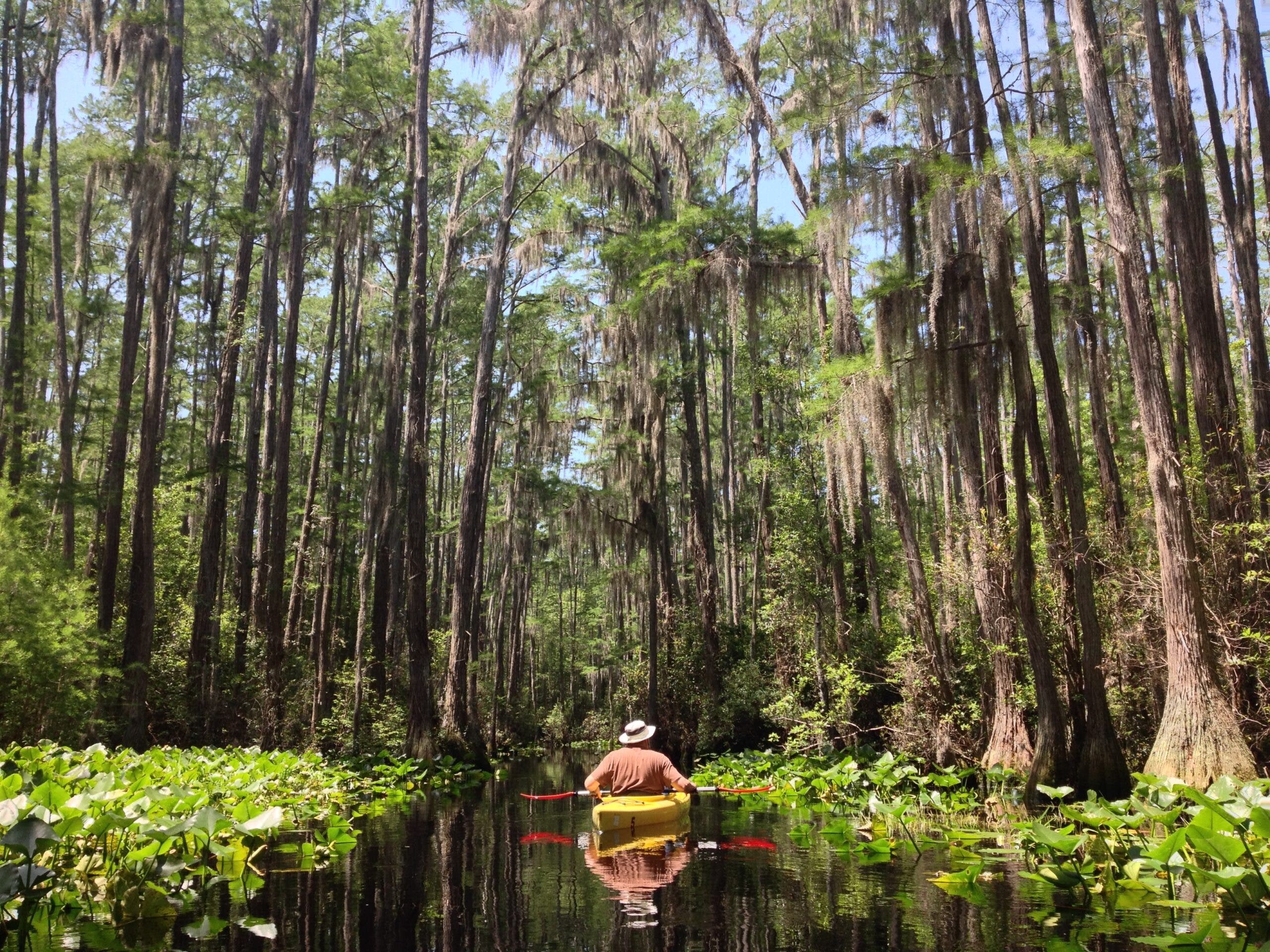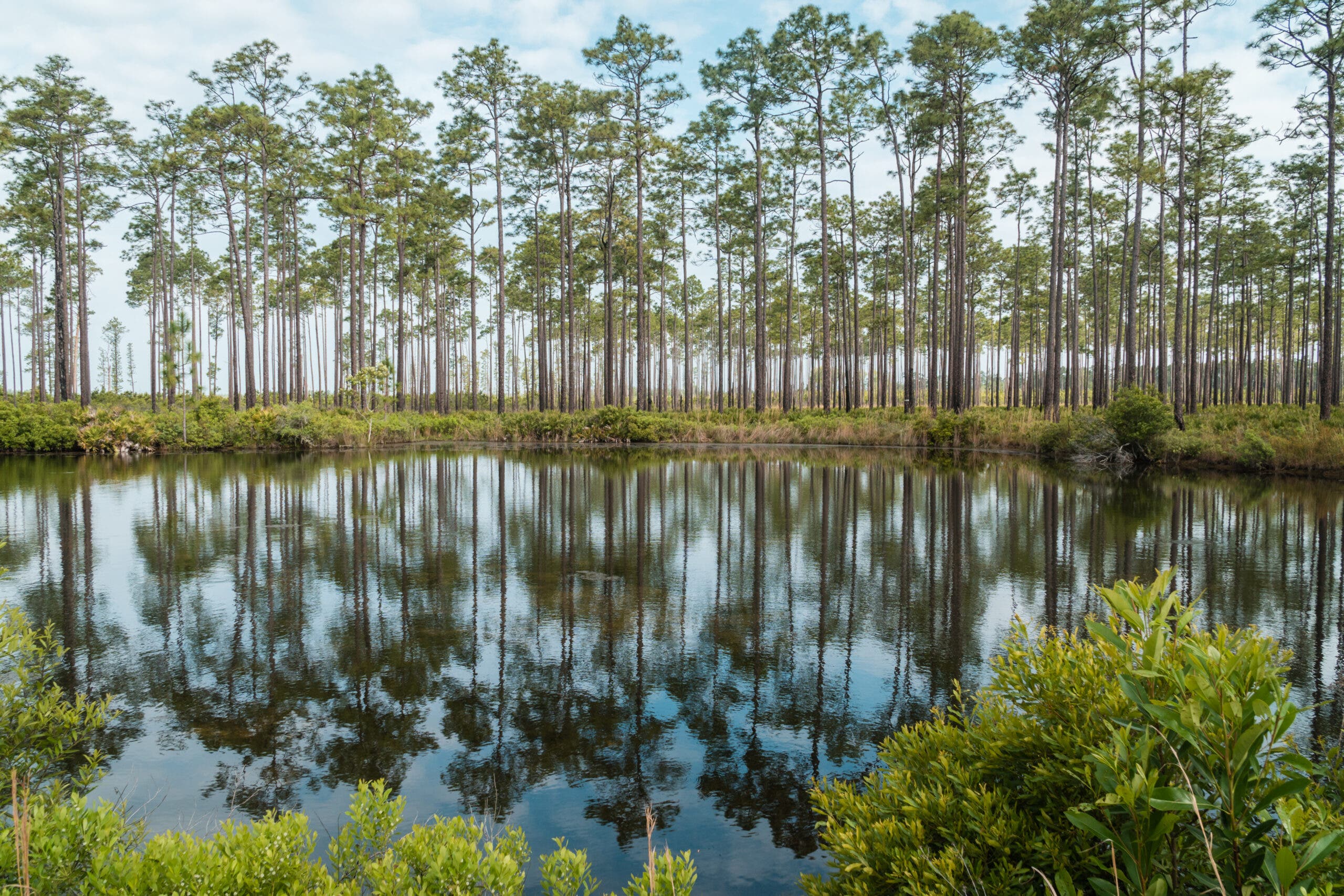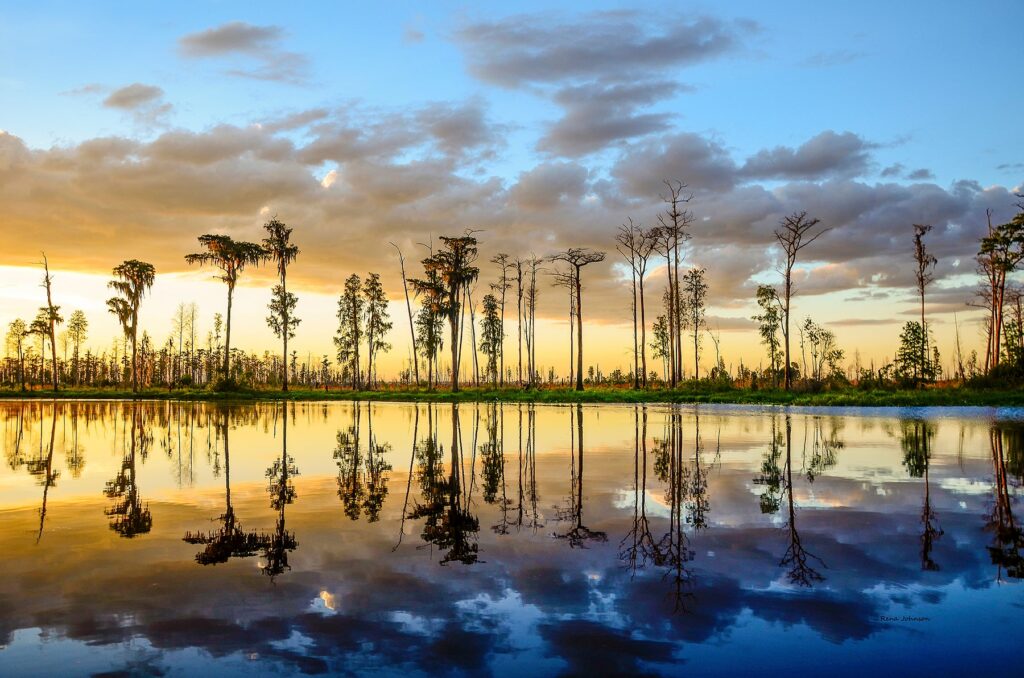Updated November 11, 2025 09:34AM
I knew as soon as I stepped out of the cabin, I was in for something remarkable. It was 4 AM and the sky glittered brightly between the branches of long leaf pines. I only needed to get to an open field to see the stars in all their glory. The sky was cloudless and dark with the moon’s light now below the horizon. My destination? One of the few tree-free vantage points inside Stephen C. Foster State Park: the main parking lot. As I stood on the pavement, I stared up at thousands of stars.
Faint stars glowed behind familiar constellations; the Big Dipper was just above the northern horizon with Polaris not far away. Overhead, Jupiter shined brighter than most other points in the sky. The number of celestial points, both brilliant and dull, overwhelmed me. The universe glowed in layers. It felt like I was experiencing true night for the first time.
As the only certified dark sky park in Georgia, Stephen C. Foster State Park–located 17 miles from the nearest town of Fargo, GA–has a strong noctourism reputation. It’s the sole gold-tier Dark Sky International Park in the in the Southeast U.S. The south Georgia park sits inside the Okefenokee Swamp National Wildlife Refuge, America’s largest blackwater swamp. The refuge is filled with mythical-looking cypress trees and live oaks with Spanish moss. Glossy water trails in the swamp mirror images of the wildflowers and trees on its banks.
After an electrifying day of boat tours and kayaking where we spotted alligators, great blue herons, and lily pads on the swamp’s tranquil waters, I didn’t think stargazing could compare, but Okefenokee Swamp comes even more alive at night.
Experienced stargazers stake out new moons with cloud-free skies to get the best views, but there’s so much to do and see here from sunrise to sunset, too.
Okefenokee, America’s Largest Blackwater Swamp
I asked half a dozen tour guides and state park employees what the top draw was for visiting the wildlife refuge of Okefenokee. Everyone had a different answer. Star-chasers come for the dark sky, birders have more than 200 species to check off their list, and adrenaline-seekers enjoy getting a glimpse of the swamp’s most populous resident, the American alligator. At least 10,000 to 15,000 of them live in this blackwater swamp, according to the River Basin Center.
I met many of these gator residents on a morning boat ride in the national wildlife refuge guided by Okefenokee Adventures. Tour guide Richard Rhodes maneuvered his Carolina Skiff boat closer than I’d ever been to the species—close enough to take a selfie with a couple of gators sunning on nearby peat bogs. Rhodes assured our group that gators aren’t usually interested in gawking humans, but was kind enough to follow our lead if we felt too close for comfort.
The Okefenokee is one of the world’s largest intact freshwater ecosystems. Despite the water’s dark appearance, resembling a black mirror, three-quarters of its water comes from rain. The color comes from the water soaking in peat, partially decayed plant matter that can be hundreds of years old. The peat steeping the freshwater like tea bags not only makes the water slightly acidic, but it’s also storing millions of tons of carbon that would otherwise leak into our atmosphere.

The Okfenokee swamp is surely a more convenient trip for U.S. visitors compared to Congo’s swamp forests or the Amazon wetlands of South America, but only about 800,000 people visit the Okefenokee each year, either on the federally-managed side of the refuge or to the state park, which leases federal land to allow for public recreation. There’s a concerted local effort to bring in more people to see this natural wonder, particularly with a bid to become a UNESCO World Heritage Site.
International scientists recently visited the Okefenokee to examine data on the refuge’s application for UNESCO World status. If its bid is successful, it would put the refuge on par with national parks such as the Grand Canyon, Yellowstone, and the Everglades. Whether it gets the international recognition or not, the Okefenokee remains a federally-protected swath of more than 400,000 acres of land and water managed by the U.S. Fish and Wildlife service.
The best way to get intimately acquainted with its waterways is on a sunset kayak inside Stephen C. Foster State Park. Park Rangers offer guided sunset tours, either via kayak or a small motorboat. I chose to kayak to be closer to the water’s surface. The sunset’s soft glow gave the swamp a peaceful feeling as I paddled across Billy’s Lake, the deepest part of the Okefenokee. Flocks of birds flew overhead, presumably heading to their nightly shelters before the swamp’s nocturnal animals became active.
“When you get out there, it’s really peaceful,” says Allie Ellis, assistant park manager of Stephen C. Foster State Park, of the swamps waterways. “You don’t realize how many ambient noises there are in the world until you get away from them. That can be really mind blowing, too.”

Where to Stay in the Okefenokee
Whether you’re coming for the 120 miles of water trails or to experience the remote wilderness of the swamp, there are a number of options for overnight stays inside the refuge. There are two main gateways into the Okefenokee. On the west side, near Fargo, is Stephen C. Foster State Park. The Georgia-managed park has a newly renovated campsite with updated hookups for both RV and car camping. Nine cabins are also available for overnight stays with a two-night minimum.
For those looking to completely unplug, the state park not only offers skies with no light pollution, but no cell service as well. The only place to connect to the outside world is at the trading post, where the park offers Wifi. The nearest town, Fargo, is minuscule with about 250 residents, and offers a few amenities for people on their way to or from the Okefenokee.
On the east side of the national wildlife refuge, campers can experience the most rustic overnight experience with primitive tent camping on a wooden platform overlooking the swamp. These overnights can be done with a guide or solo.
If you want a remote experience not too far from civilization, the federal entrance is located in the town of Folkston, which has a handful of restaurants, and some small outfitters for last-minute camping gear. Cell phone service is better on this side of the refuge.

The Best Time to Visit the Okefenokee
The state park occasionally hosts nighttime programs, providing public access to the park ranger’s telescope and other educational teachings about the night sky. Check their programming page for upcoming events.
The biggest challenge to planning a dark sky excursion in the Okefenokee is finding cloudfree nights in the park. Most storms occur in the summer months when the subtropical climate is at its most humid, making August’s Perseid meteor shower a chancier time to visit.
The cool nights of late fall and winter are more likely to provide clear skies. The Geminids meteor shower of early to mid-December is a great time to get a clearer celestial show.


